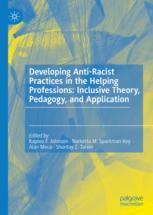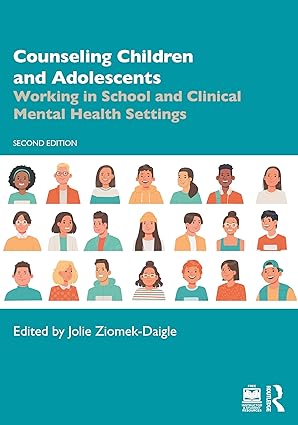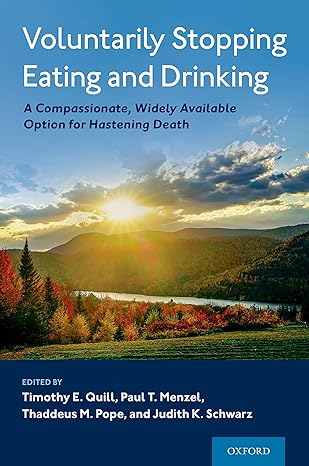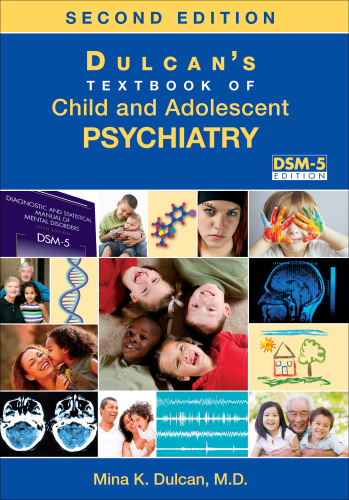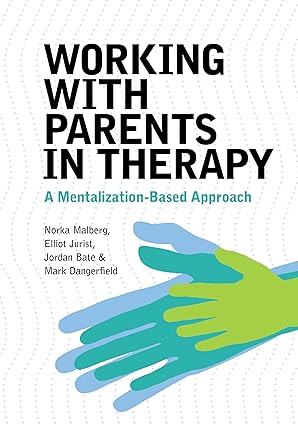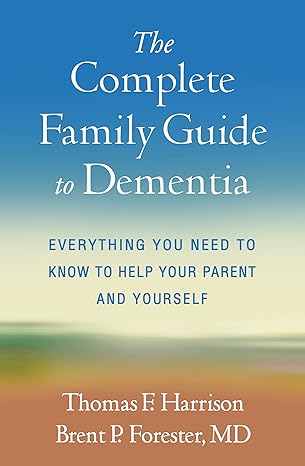Additionally, we have publicly witnessed the impact of over policing and police brutality on Black people as a result of the murders of George Floyd, Breonna Taylor, Ahmaud Arbery, and countless others. It is also critical to acknowledge pervasive health, educational, and eco- nomic disparities within the United States. Indeed, ethnic and racial minorities are more likely to experience a number of poor health out- comes (e.g., diabetes, maternal mortality, child suicide) as a result of a variety of disadvantages rooted in systemic racism (Alegria et al., 2010; Kaholokula, 2016; Liese et al., 2019; Spanakis & Golden, 2013). The COVID-19 pandemic has further amplified these inequities within the healthcare system as Black and Brown communities disproportionately experienced the brunt of the detrimental impact of COVID-19 early within the pandemic (Abedi et al., 2021; Khazanchi et al., 2020). Education within the United States has also had a long history rooted in institutionalized racism ranging from the Native American Boarding Schools that were created to forcibly strip indigenous youths’ cultural identities to anti-literacy laws and segregation laws (Kohli et al., 2017). These, and the other ways systemic racism has historically shaped our education system, has resulted in institutionalized inequities that have long-term impacts on students of color and account for pervasive educa- tional disparities. Additionally, a variety of meta-analysis have docu- mented the detrimental impact of racism and discrimination on educational attainment, mental health (including depression, anxiety, and stress), and physical health, including cardiovascular diseases, and other potential risk factors for disease such as obesity and substance use (e.g., Benner et al., 2018; Carter et al., 2019; Paradies et al., 2015; Pascoe & Smart Richman, 2009).
چکیده فارسی
علاوه بر این، ما به طور علنی شاهد تأثیر خشونت بیش از حد پلیس و پلیس بر سیاه پوستان در نتیجه قتل جورج فلوید، برونا تیلور، احمد آربری و تعداد بیشماری دیگر بوده ایم. به رسمیت شناختن نابرابریهای بهداشتی، آموزشی و اقتصادی فراگیر در ایالات متحده نیز حیاتی است. در واقع، اقلیت های قومی و نژادی به احتمال زیاد تعدادی از پیامدهای سلامت ضعیف (مانند دیابت، مرگ و میر مادران، خودکشی کودکان) را در نتیجه انواع معایب که ریشه در نژادپرستی سیستمیک دارند، تجربه می کنند (الگریا و همکاران، 2010; Kaholokula، 2016؛ Liese و همکاران، 2019؛ Spanakis & Golden، 2013). همهگیری کووید-19 این نابرابریها را در سیستم مراقبتهای بهداشتی تشدید کرده است، زیرا جوامع سیاهپوست و قهوهای به طور نامتناسبی تأثیر مخرب کووید-19 را در اوایل همهگیری تجربه کردند (عابدی و همکاران، 2021؛ خزانچی و همکاران، 2020). . آموزش و پرورش در ایالات متحده همچنین دارای سابقه ای طولانی است که ریشه در نژادپرستی نهادینه شده دارد، از مدارس شبانه روزی بومیان آمریکا که برای حذف اجباری هویت فرهنگی جوانان بومی تا قوانین ضد سواد و قوانین جداسازی ایجاد شده اند (کوهلی و همکاران، 2017). اینها و دیگر راههایی که نژادپرستی سیستماتیک بهطور تاریخی نظام آموزشی ما را شکل داده است، منجر به نابرابریهای نهادینه شده است که تأثیرات بلندمدتی بر دانشآموزان رنگینپوست دارد و نابرابریهای آموزشی فراگیر را بهوجود میآورد. بعلاوه، انواع متاآنالیز تأثیر مخرب نژادپرستی و تبعیض را بر پیشرفت تحصیلی، سلامت روان (شامل افسردگی، اضطراب و استرس) و سلامت جسمانی، از جمله بیماریهای قلبی عروقی، و سایر عوامل خطر بالقوه بیماری را مستند کردهاند. مانند چاقی و مصرف مواد (به عنوان مثال، بنر و همکاران، 2018؛ کارتر و همکاران، 2019؛ پارادیس و همکاران، 2015؛ پاسکو و اسمارت ریچمن، 2009).
ادامه ...
بستن ...
Additionally, we have publicly witnessed the impact of over policing and police brutality on Black people as a result of the murders of George Floyd, Breonna Taylor, Ahmaud Arbery, and countless others. It is also critical to acknowledge pervasive health, educational, and eco- nomic disparities within the United States. Indeed, ethnic and racial minorities are more likely to experience a number of poor health out- comes (e.g., diabetes, maternal mortality, child suicide) as a result of a variety of disadvantages rooted in systemic racism (Alegria et al., 2010; Kaholokula, 2016; Liese et al., 2019; Spanakis & Golden, 2013). The COVID-19 pandemic has further amplified these inequities within the healthcare system as Black and Brown communities disproportionately experienced the brunt of the detrimental impact of COVID-19 early within the pandemic (Abedi et al., 2021; Khazanchi et al., 2020). Education within the United States has also had a long history rooted in institutionalized racism ranging from the Native American Boarding Schools that were created to forcibly strip indigenous youths’ cultural identities to anti-literacy laws and segregation laws (Kohli et al., 2017). These, and the other ways systemic racism has historically shaped our education system, has resulted in institutionalized inequities that have long-term impacts on students of color and account for pervasive educa- tional disparities. Additionally, a variety of meta-analysis have docu- mented the detrimental impact of racism and discrimination on educational attainment, mental health (including depression, anxiety, and stress), and physical health, including cardiovascular diseases, and other potential risk factors for disease such as obesity and substance use (e.g., Benner et al., 2018; Carter et al., 2019; Paradies et al., 2015; Pascoe & Smart Richman, 2009).
ادامه ...
بستن ...
v
Contents
1 Introduction 1
Alan Meca, Narketta M. Sparkman-Key, Kaprea F. Johnson,
and Shuntay Z. Tarver
Section I Antiracist Helping Professions Theoretical
Underpinnings 13
2 Introduction to Anti-Racist Theories 15
Anthony J. Vajda, T’Airra Belcher, Ne’Shaun Borden, and
Francisca Rivas
3 The Importance of Culturally Responsive and Afrocentric
Theoretical Frameworks-A Call for More Inclusive
Curriculum in Counselor Education 25
Erin Durrah, Andrea Hampton Hall, and Anthony J. Vajda
4 Antilinguicist Schools, Antilinguicist Systems 45
Joanna Meadvin, Adriana Díaz, Guadalupe Díaz,
Anya Hurwitz, Martha I. Martinez, Corina Sapien, and
Cory Weschler
vi Contents
5 Moving Beyond Performative Allyship: A Conceptual
Framework for Anti-racist Co-conspirators 67
Leslie Ekpe and Sarah Toutant
6 Service or Saviorism: Deconstructing Benevolent Racism
in the Helping Professions 93
Brittany M. Wake
Section II Antiracist Pedagogy in Helping Professions 111
7 Antiracist Pedagogy for Helping Professionals 113
Shuntay Z. Tarver
8 The Linguistic Gospel Truth: Implementing Inclusive
Language Practices for Navigating the Educational Space 127
Sarah Earlene Burford and Bridget L. Anderson
9 Decentering Whiteness in Teaching Psychopathology:
Challenges and Opportunities 155
Stephanie Z. Chen
10 An Antiracist Approach to Social Work Education at
HBCUs 173
Melissa E. Buckley, Malcolm Drewery, and Gary Jones
11 Program Practices for Cultivating Antiracist Counselors 197
Eva M. Gibson and Jessica A. Fripp
12 Examining Multicultural Pedagogy in Counselor
Programs: Recommendations for Enhanced Clinical
Competency 225
Taylor J. Irvine, Adriana C. Labarta, and Danna Demezier
viiContents
13 Strategies for Implementing Antiracist Frameworks in
Teaching Materials for Health Professions 251
Sarah E. LaFave, Lea A. Marineau, Keilah A. Jacques, Cassidy
Griffith, Ruth-Alma Turkson-Ocran, Mona Shattell, Sarah
L. Szanton, and Lucine Francis
Section III Antiracist Helping Professions in Application 277
14 Breaking Strongholds: Equity Centering in Helping
Approaches 279
Brittany G. Suggs, Lauren B. Robins, Janelle L. Jones, and
Dana L. Brookover
15 Voices from the Field of School Counseling: Promoting
Anti-Racism in School Settings 305
Rawn Boulden and Ne’Shaun Borden
16 “There Isn’t a Racist Bone in My Body!”: A Case Study
on Fostering Anti-Racism in School Counseling 329
Krystal L. Clemons and Raven K. Cokley
17 Antisemitism and Islamophobia: Old and Dynamic
Racisms 361
Waleed Y. Sami and Aliza H. Lambert
18 Diversity, Equity & Inclusion Training in a New Key:
Adapting a Race-Class Lens for the Helping Professions 391
Daniel José Gaztambide, Dashawn Ealey, and Bora Meraj
19 Antiracism and Health: An Action Plan for Mitigating
Racism in Healthcare 421
Janice Hawkins, Leslie Hoglund, Jamela M. Martin,
Marvin T. Chiles, and Kimberly Adams Tufts
viii Contents
20 A Telehealth Antiracist Learning Experience for Nursing
and Social Work Students in the Midst of COVID-19 451
Melissa E. Buckley and Camille R. Jensen
21 Working with Multiracial Individuals: Antiracist
Pedagogy, Practices, and Considerations 469
C. Peeper McDonald and Catherine Y. Chang
22 Epilogue 493
Kaprea F. Johnson, Narketta M. Sparkman-Key, Alan Meca,
and Shuntay Z. Tarver
Answer Key 497
Index 511
ادامه ...
بستن ...
